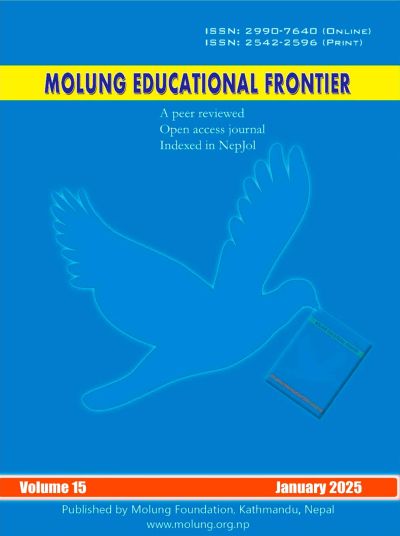Manifestation of Hybrid Subjectivity: Fate of Diaspora in the Assamese Novel Damphu
DOI:
https://doi.org/10.3126/mef.v15i01.73939Keywords:
hybrid subjectivity, double consciousness, diaspora, borderline, globalizationAbstract
This article concentrates on the hybrid subjectivity of the protagonist Jung, a Nepali diaspora in the novel Damphu: The Rhythms ofLife living at Assam in India. It scrutinizes how Jung, as a diaspora, embodies cultural affiliations on both sides namely Nepal and Assam. He stays in one place and maintains close and imaginary relations with another. The novel written by Rumi Laskar Bora originally in Assamese language and later translated in English by Sarita Sharma is under scrutiny in this article. Theoretical insights of hybridity are borrowed from Mikhail Bakhtin, Michele Reis, Edward Said, Evan Mwangi, Brian Stross and G. Sheffer. During the Second World War or earlier to it or even today, many people of Nepalese origin migrated or have migrated to the land of India for job opportunity or settlement or the both. However, they embody double consciousness, an outcome of hybridity swinging back and forth between Nepal and Assam. The hybrid subjectivity seems to accept the coexistence of opposites.
Downloads
Downloads
Published
How to Cite
Issue
Section
License
© Molung Foundation




